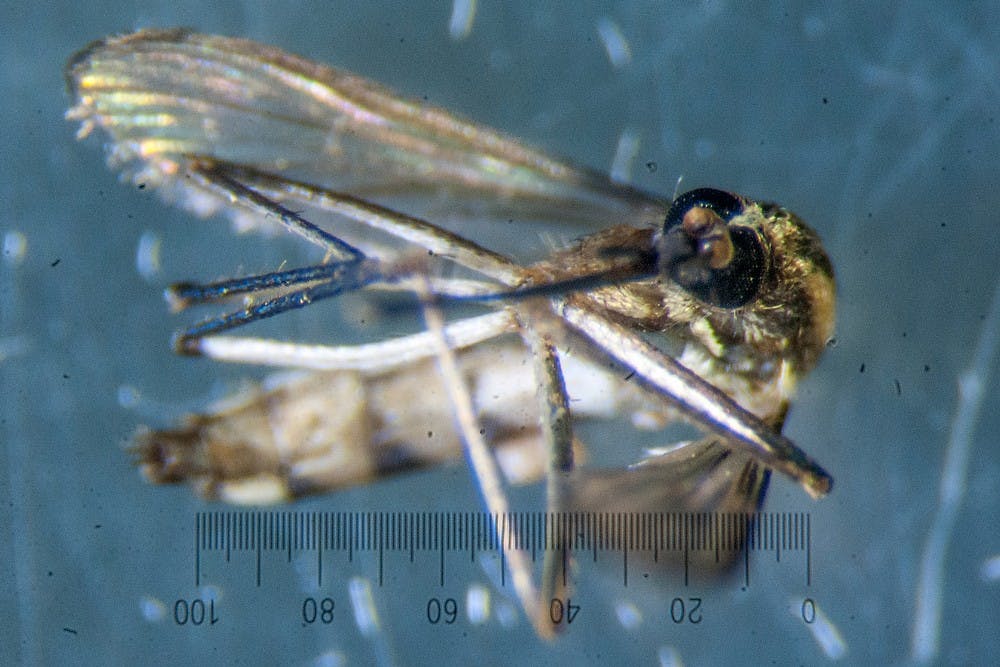A number of MSU athletes and alumni are competing in the 2016 Summer Olympics in Rio de Janeiro.
Amongst a laundry list of problems Brazil is currently having relating to hosting the Olympics is the mosquito-spread Zika virus. Yet just how much of a danger is the virus to Olympic athletes?
"(It’s) fairly low risk,” Michael Kaufman, an MSU entomologist who specializes in mosquitoes, said.
Kaufman said as long as athletes take proper precautions such as sleeping in areas with good doors, window screens and air conditioning, they should not have a problem with Zika.
“Do they need to wear repellent when they’re out competing? I don’t think so,” Kaufman said.
Kaufman said one area of concern was women who are pregnant or looking to become pregnant, as the virus can impair fetal cognitive development.
“If I was a woman thinking about becoming pregnant after I got back I’d wait... a year, but at least half a year before you did it,” Kaufman said. “If you’re a pregnant woman and you’re down there and you’re watching the games, then you have something to worry about.”
And if an athlete did get infected?
“I mean, Draymond Green... if he got bit by a mosquito with Zika, he’d clear it from his blood. I bet you he wouldn’t even have any symptoms,” Kaufman said.
As for the Zika virus ever making its way to Michigan, Kaufman said the species which spreads the disease (Aedes Aegypta) would not be able to survive Michigan’s harsh winters, making Zika in Michigan an unlikely prospect.
Kaufman said that one possible scenario is for a native Michigan mosquito to bite a person infected with Zika, and then spread it to another human.
“It’s a really, really, really low probability that it would happen,” Kaufman said. “The mosquito has to bite an infected human, it has to survive a week or so for the virus to multiply, then it has to bite another human.”
Kaufman said the reason Zika is transmitted potently in Brazil is due to the Aedes Aegypta’s preferred diet: people.
Since this mosquito doesn’t exist in Michigan, Michiganders remain relatively sheltered from Zika.
“You have a better chance of getting it from sexual transmission or a blood transfusion or something than you do a mosquito,” Kaufman said.







